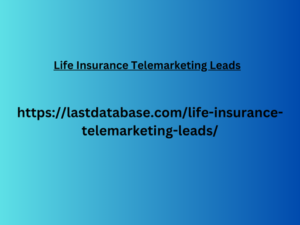ABM Lead Generation
In today’s competitive B2B landscape, generating qualified leads is essential for business growth. Enter Account-Based Marketing (ABM), a strategic approach that focuses on a defined set of high-value target accounts. ABM lead generation leverages this targeted approach to cultivate relationships with key decision-makers and ultimately drive conversions.
This article delves into the world of ABM lead generation, exploring its core principles, effective strategies, and the benefits it offers for B2B businesses.
Why ABM Lead Generation Matters
ABM lead generation stands out from traditional lead generation methods for several reasons:
Laser Focus: ABM targets specific, high-value accounts with the greatest potential to become loyal customers. This focused approach maximizes return on investment (ROI) compared to a scattershot approach.
Personalized Engagement: ABM allows for personalized outreach and content tailored to the specific needs and challenges of each target account. This fosters stronger relationships and builds trust with decision-makers.
Collaborative Efforts: ABM often involves collaboration between marketing and sales teams, ensuring a cohesive approach to nurturing leads and converting them into customers.
Core Strategies for Effective ABM Lead Generation
Here are some key strategies to implement a successful ABM lead generation campaign:
Identify Ideal Customer Profiles (ICPs): Define the characteristics of your ideal customer accounts based on industry, size, budget, and pain points.
Research Target Accounts: Thoroughly
research your target accounts to understand their specific needs, challenges, and buying journey.
Develop Personalized Content: Create valuable content (e-books, case studies, white papers) tailored to the interests and challenges of each target account.
Multi-Channel Engagement: Utilize
a variety of channels like email, social media, direct mail, and targeted advertising to reach decision-makers within your target accounts.
Track and Measure Results: Continuously monitor the performance of your ABM campaign, track key metrics (engagement rates, conversion rates), and refine your approach based on the data.
Leveraging Technology for ABM Success
Several marketing automation and account-based marketing platforms can enhance your ABM lead generation efforts:
CRM Integration: Integrating your ABM platform with your Customer Relationship Management (CRM) system allows for a centralized view of all interactions with target accounts.
Data Analytics: These platforms provide valuable data and insights into your target accounts’ behavior and engagement with your content, enabling you to optimize your strategy.
Targeted Advertising: Utilize platforms like LinkedIn Ads to target specific decision-makers within your Life Insurance Telemarketing Leads chosen accounts with personalized messaging.
The Advantages of ABM Lead Generation
Here are some key benefits of implementing ABM lead generation:
Increased ROI: By focusing on high-value accounts, ABM delivers a better return on investment compared to broader lead generation methods.
Shorter Sales Cycles: The The Follow-Up Frenzy: Mastering the Art of “Nudge, Don’t Nag” Emails personalized approach of ABM fosters stronger relationships, potentially leading to faster deal closures.
Higher Customer Lifetime Value:
Nurturing strong relationships with key accounts can translate to increased customer loyalty and higher lifetime value.
Improved Brand Reputation: Targeted and personalized outreach can enhance your brand image and position you as a trusted advisor to your target accounts.
Conclusion: Cultivating Success Through Targeted Lead Generation
ABM lead generation offers a powerful approach for B2B businesses to capture the attention of high-value accounts, build lasting relationships, and ultimately drive profitable growth. By focusing on meticulous planning, personalized content creation, and strategic multi-channel engagement, you can transform ABM from a strategy to a significant competitive advantage.
Remember, successful ABM lead
generation hinges on a deep understanding of your target accounts, a commitment to personalization, and continuous refinement based on data and results.


